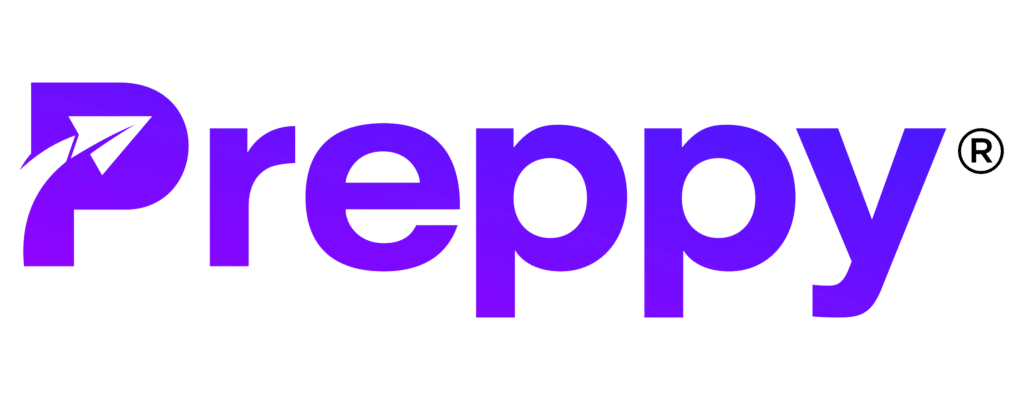Becoming a certified medical assistant (CMA) is an excellent career choice for those interested in healthcare but looking for a relatively quick path to entry. As a medical assistant, you’ll play a critical role in supporting healthcare professionals and ensuring the smooth operation of medical offices and clinics. Whether you’re starting from scratch or considering a career change, there are three key components to becoming a certified medical assistant.
In this article, we will break down these essential elements: formal training, certification, and hands-on clinical experience. We’ll also look at how you can become job-ready in as little as 16 weeks, without a large financial investment or years of schooling.
Formal Medical Assistant Training
The first essential step in your journey to becoming a certified medical assistant is obtaining formal training. Just like any other career, having the right knowledge and skills is crucial to performing your job well. While it’s possible to learn a lot on the job, formal training will ensure you are prepared to meet the expectations of your future employer.
Types of Medical Assistant Programs
When considering medical assistant training, you generally have two options: a full-time on-campus program or a more flexible online or local class. Both have their pros and cons, depending on your personal situation and goals.
Full-Time On-Campus Program
A full-time on-campus program at a community college or university typically takes 1-2 years to complete. While these programs are more expensive and time-consuming, they offer a well-rounded education and the opportunity to earn a certificate from a respected institution. This can be a significant advantage when applying for jobs, as employers often value the credibility of a university certificate.
However, on-campus programs come with several downsides, especially for busy adults. The major drawbacks include:
- High Cost: Full-time degree programs can cost upwards of $15,000–$20,000, and certificate programs at a community college can still reach around $7,000. To afford these programs, you may need to rely on student loans or financial aid, potentially creating debt before you even begin your career.
- Additional Expenses: Beyond tuition, you’ll incur costs for books, gas, parking permits, and other fees associated with attending campus. These costs add up quickly, increasing the financial burden.
- Long Duration: If you’re already working or have family commitments, attending a full-time program can be a huge challenge. Commuting to campus multiple times a week can be time-consuming, and many students drop out before completing the program due to these obstacles.
Local or Online Medical Assistant Classes
The alternative to full-time college programs is to opt for local or online classes. These programs are generally cheaper, quicker to complete, and offer more flexibility. For those who need to balance work or family commitments, these programs can be a better option.
While they come with certain advantages, local or online classes also have significant limitations:
- Curriculum Might Not Be Thorough: Some local or online programs may not provide all the knowledge and skills needed to succeed in the job or to pass the certification exam. This could leave you unprepared for the responsibilities of a medical assistant.
- Lack of Clinical Experience: Unlike on-campus programs, local and online classes might not include opportunities for hands-on clinical experience. Clinical experience is crucial to becoming job-ready and for passing certification exams.
- Missed Credentialing Opportunities: You won’t receive a prestigious university certificate, which can be important when seeking employment in healthcare.

Medical Assistant Certification
Once you have completed your training, the next step is to obtain a certification. Certification is an important credential in the healthcare field and is typically required by most employers hiring medical assistants.
What Is a Medical Assistant Certification?
A medical assistant certification validates that you have the knowledge and skills necessary to perform the duties of a medical assistant. This certification is usually awarded after passing an exam administered by a nationally recognized certifying body.
The most common certification for medical assistants is the Certified Clinical Medical Assistant (CCMA) credential, awarded by the National Healthcareer Association (NHA). To obtain this certification, you need to:
- Complete an accredited medical assistant training program that prepares you for the CCMA exam.
- Pass the CCMA certification exam, which tests your knowledge in clinical and administrative duties.
While some training programs may claim to prepare you for the role, it’s important to choose a program that specifically prepares you for the certification exam. Passing the exam will allow you to use the CCMA title, which can significantly enhance your job prospects in the healthcare industry.
Why Is Certification Important?
Certification is often required by healthcare employers, and it demonstrates that you are committed to the profession and have met industry standards. Having the CCMA certification can:
- Make you a more competitive job candidate.
- Increase your earning potential.
- Open doors to more advanced career opportunities in the future.
While certification is not always mandatory, it’s highly recommended and often expected by employers, especially in competitive job markets.
Hands-On Clinical Experience
Although formal training and certification are crucial, hands-on clinical experience is equally important for success as a medical assistant. Medical assistants work in clinical environments, directly interacting with patients and supporting healthcare providers in various tasks. Without practical experience, you might feel unprepared to work in a real healthcare setting.
The Importance of Clinical Experience
Employers look for candidates who have not only the theoretical knowledge but also the practical skills needed to work in a clinical environment. Having clinical experience makes you more confident in your role and helps you develop the necessary skills, such as:
- Taking patient histories.
- Assisting with examinations.
- Performing lab tests and administering injections.
- Managing medical records.
How to Gain Clinical Experience
The best way to gain hands-on clinical experience is through an externship. An externship is a short-term, practical training opportunity that places you in a real healthcare setting, such as a doctor’s office, hospital, or clinic. Externships typically last a few weeks and provide invaluable experience that prepares you for your future job.
Most accredited medical assistant programs (like those offered through the Preppy approach) include an externship opportunity as part of the training process. This allows you to apply what you’ve learned in a real-world environment and ensures you’re fully prepared for the demands of the job.
How To Become A Certified Medical Assistant Faster?

If you’re looking to become a Certified Medical Assistant quickly, there’s a clear path you can follow. Here’s how you can accelerate your journey into this vital healthcare role.
Step 1 -> Obtain a High School Diploma
The first requirement on your journey to becoming a Certified Medical Assistant is to earn a high school diploma or its equivalent. This educational foundation is essential for enrolling in any Medical Assistant training program.
Step 2 -> Enroll in a Medical Assistant Training Program
Choosing the right training program is crucial. Online, self-paced programs are an excellent option for those who want to complete their education quickly and conveniently.
Among these, Preppy’s Self-Paced Medical Assistant Training Program stands out, highly recommended by industry experts. This program offers:
- Online, Self-Paced Learning. So you could study at your own pace, making it easier to balance your education with other responsibilities.
- Upon finishing the course, you get a University Certificate of Completion from a recognized Auburn University.
- The program is very budget-friendly, costing just $1599, reducing the financial burden on students.
- You could finish the program in as little as 6 months, so you could get into the workforce sooner.
- You could also gain real-world experience through an externship opportunity.
- You get 24/7 assistance for academic, technical, and career-related queries.
- Finally, the best part – the program could help you become CCMA-ready, so you could become a Certified Clinical Medical Assistant faster.
So if you want to start your career faster, you could check out Preppy’s Self-Paced Medical Assistant Training Program.
Step 3 -> Complete the Coursework
After enrolling, focus on completing your coursework. Since Preppy’s program is self-paced, you can adjust your study schedule to suit your lifestyle, allowing for faster completion.
Upon finishing the coursework, you will receive an Auburn University certificate of completion. This credential adds significant value to your resume and helps in your job search.
Step 4 -> Register for the CCMA Exam by NHA
The next step is to register for the CCMA exam conducted by the National Healthcareer Association (NHA). This certification is widely recognized and will boost your employability.
Step 5 -> Prepare for the CCMA Exam
Preparation is key to passing the CCMA exam. Utilize the study resources and practice tests provided by your training program to ensure you’re ready.
Moreover, if you choose an online training program, you have the advantage of easily revisiting your course materials while studying for your exam. This flexibility is not typically available with traditional college degrees or diplomas.
Step 6 -> Take the CCMA Exam and Get Certified
After completing your training program and gaining the necessary knowledge, it’s time to become a Certified Clinical Medical Assistant (CCMA).
This certification is crucial as it validates your skills and makes you a more competitive candidate in the job market.
To achieve this certification, you must pass the CCMA exam administered by the National Healthcareer Association (NHA).
Successfully passing this exam demonstrates your proficiency in the essential duties of a medical assistant, officially marking the start of your professional career in healthcare. If, unfortunately, you didn’t pass the exam on the first attempt, relax, you can retake the exam after 30 days.
Why the Preppy Program is a Game-Changer

Preppy’s Online medical assistant program offers a solution for aspiring medical assistants who want to enter the field quickly without compromising on quality. With its comprehensive approach to training, including CCMA exam preparation, hands-on clinical experience, and a university-affiliated certificate, Preppy provides all the elements needed to succeed in the healthcare industry.
The program is also cost-effective. Unlike traditional programs that can cost tens of thousands of dollars, Preppy is available for less than $2,000, making it accessible to a broader range of students. Furthermore, its flexible online format allows students to learn at their own pace, potentially completing their training in as little as four months.
Also read: What is a Medical Assistant Certification?
Conclusion: Becoming a Certified Medical Assistant in 16 Weeks
In summary, the path to becoming a certified medical assistant includes three critical elements: formal training, certification, and hands-on clinical experience. With the right program, you can be job-ready in as little as 16 weeks, without incurring significant debt or spending years in school.
About:
Preppy was founded by higher education expert, Grant Aldrich, whose work on college affordability and accessibility has been featured in Forbes, Bloomberg Businessweek, Business Insider, American Express, AOL, MSN, Thrive Global, Reader’s Digest, Inside Higher Ed, Evolllution, EducationDive, and nearly 100 radio shows and podcasts.
Time is money. Instead of programs that could take 2 years, Preppy provides you with education in a few months through immersive online training.
Healthcare, IT, Business, Trades…Preppy gets you ready for the trending careers in our modern economy.
Our team of higher education and startup veterans has created the best solution so everyone can obtain the emerging careers of today and tomorrow.
We look forward to speaking with you. You may also call 800-729-1317.
Medical assistant





